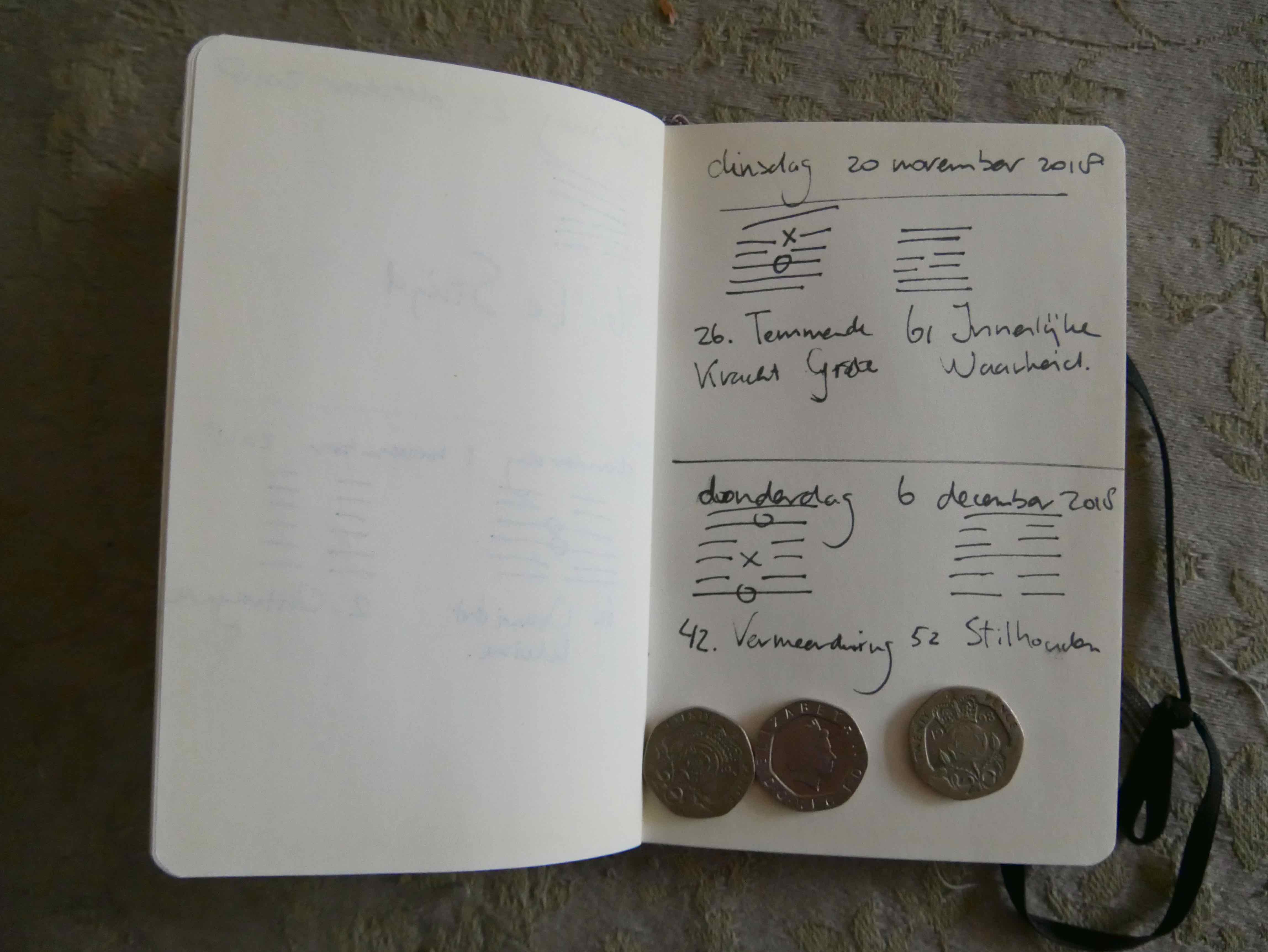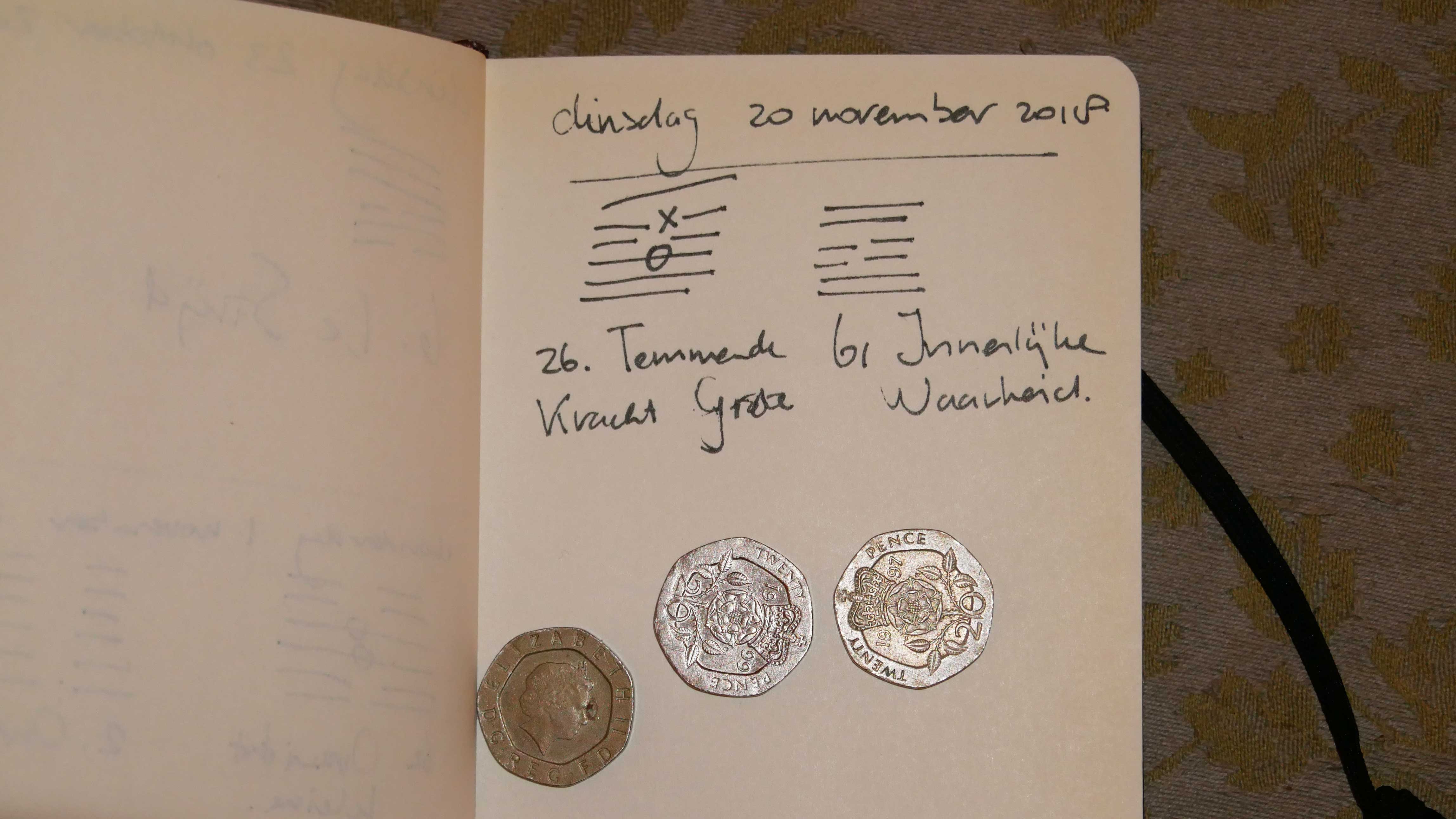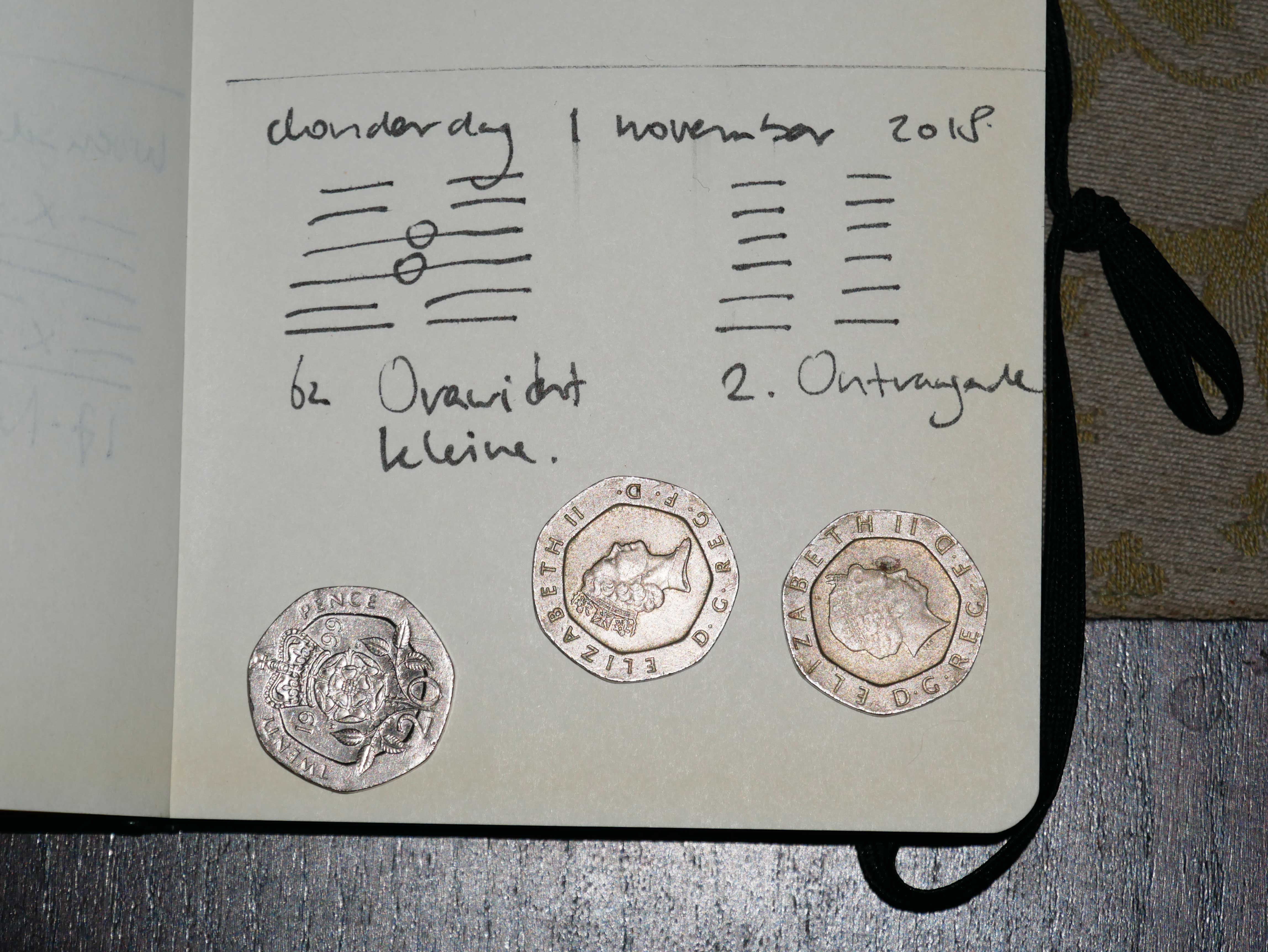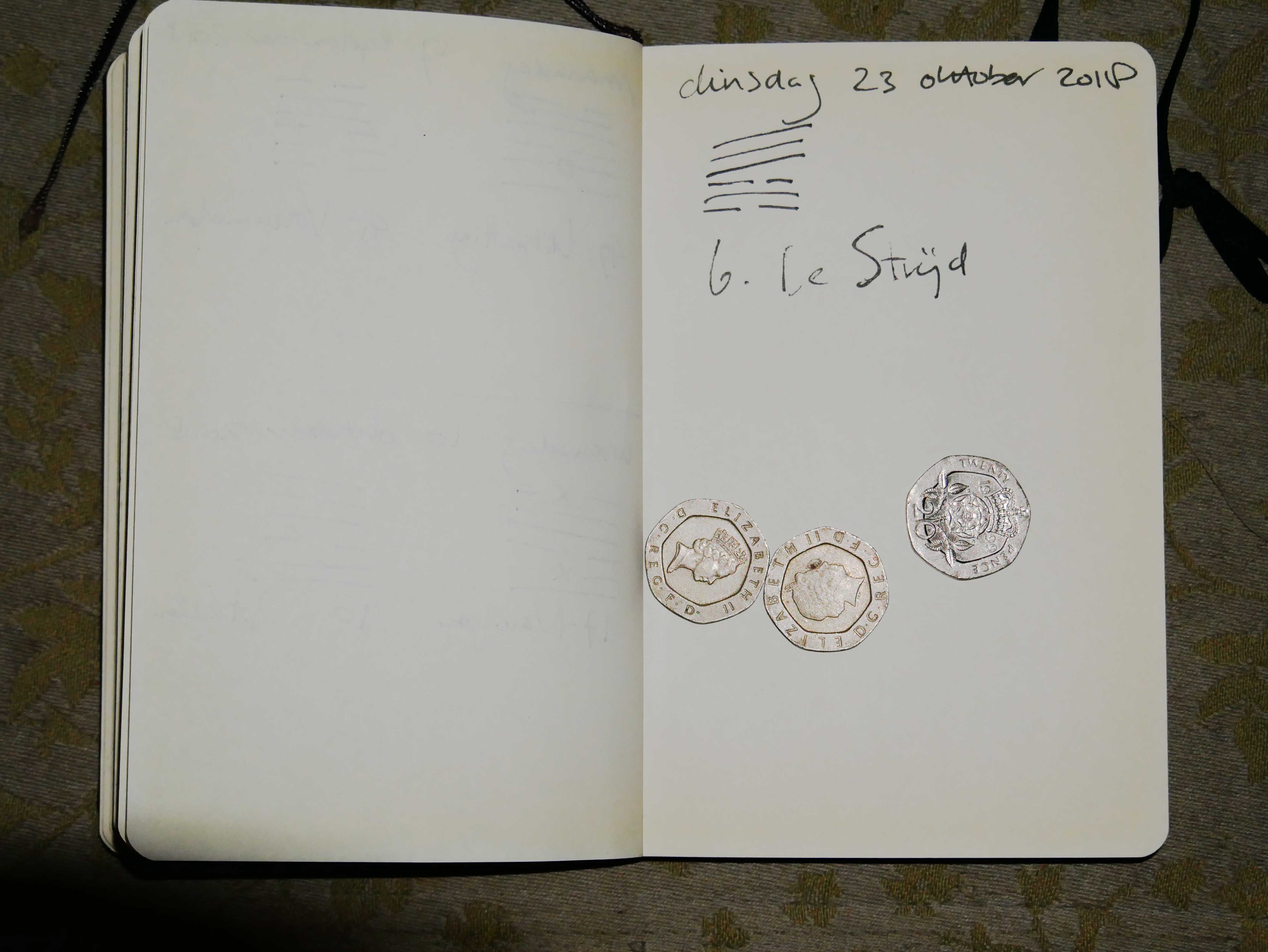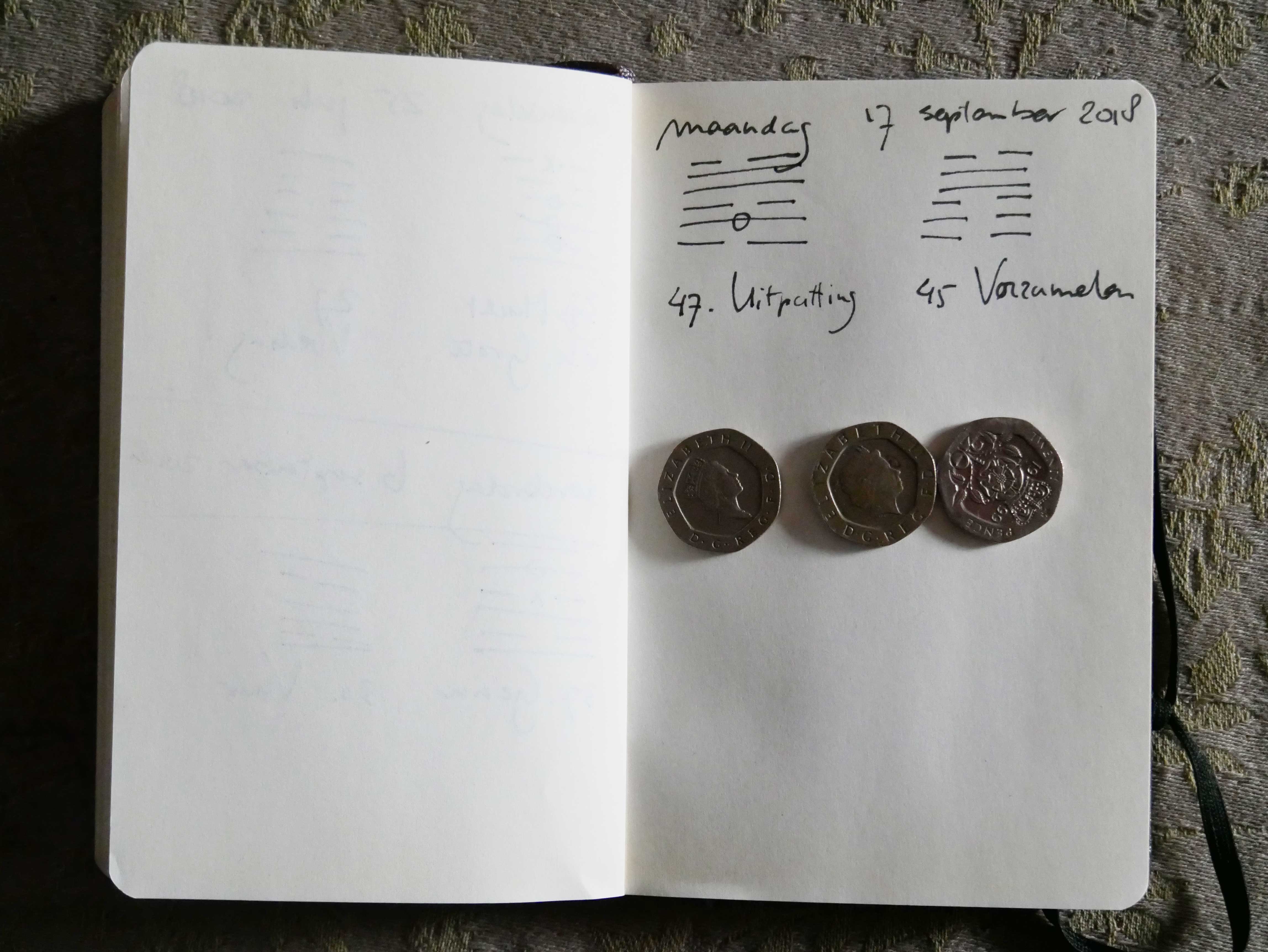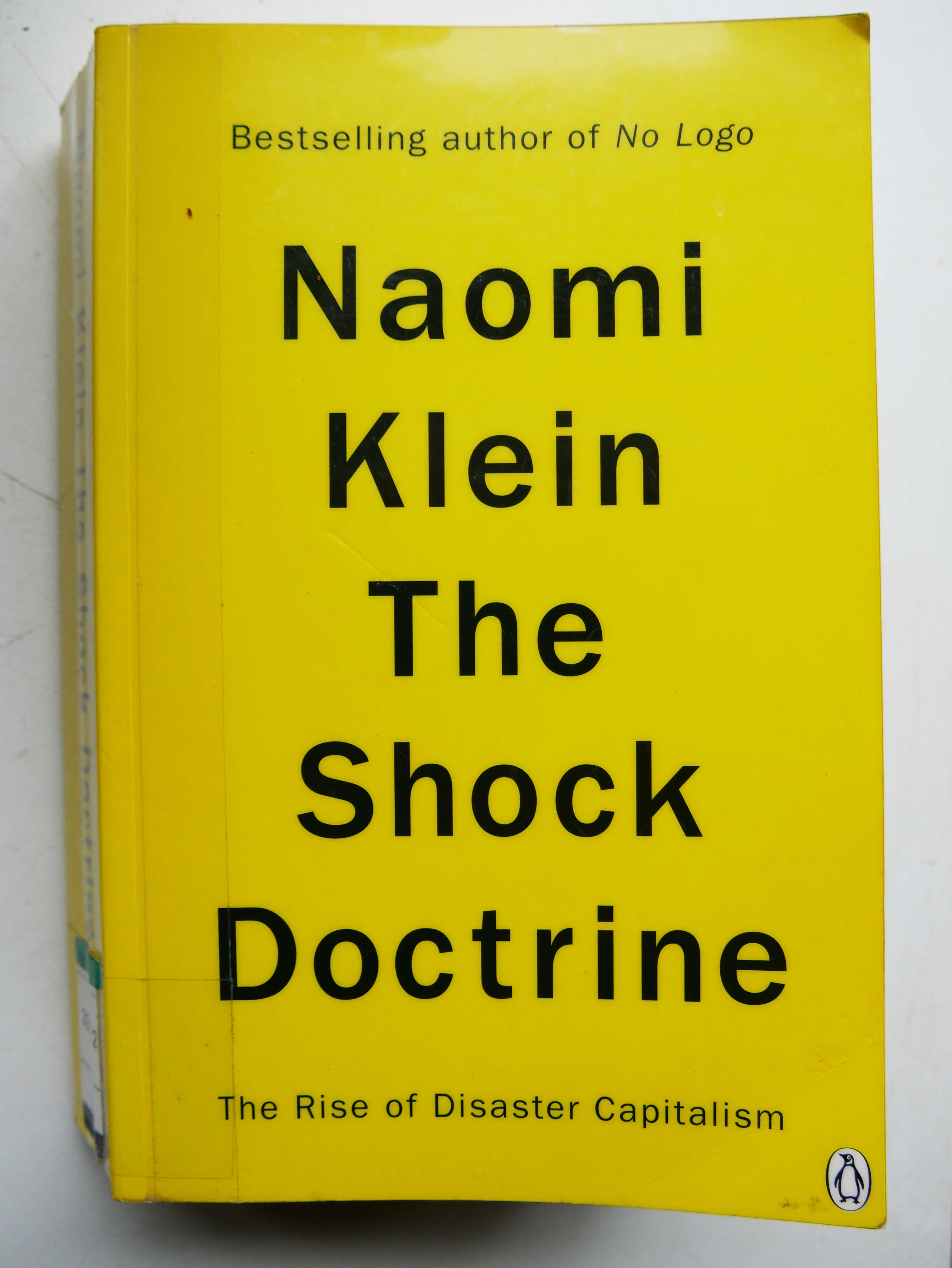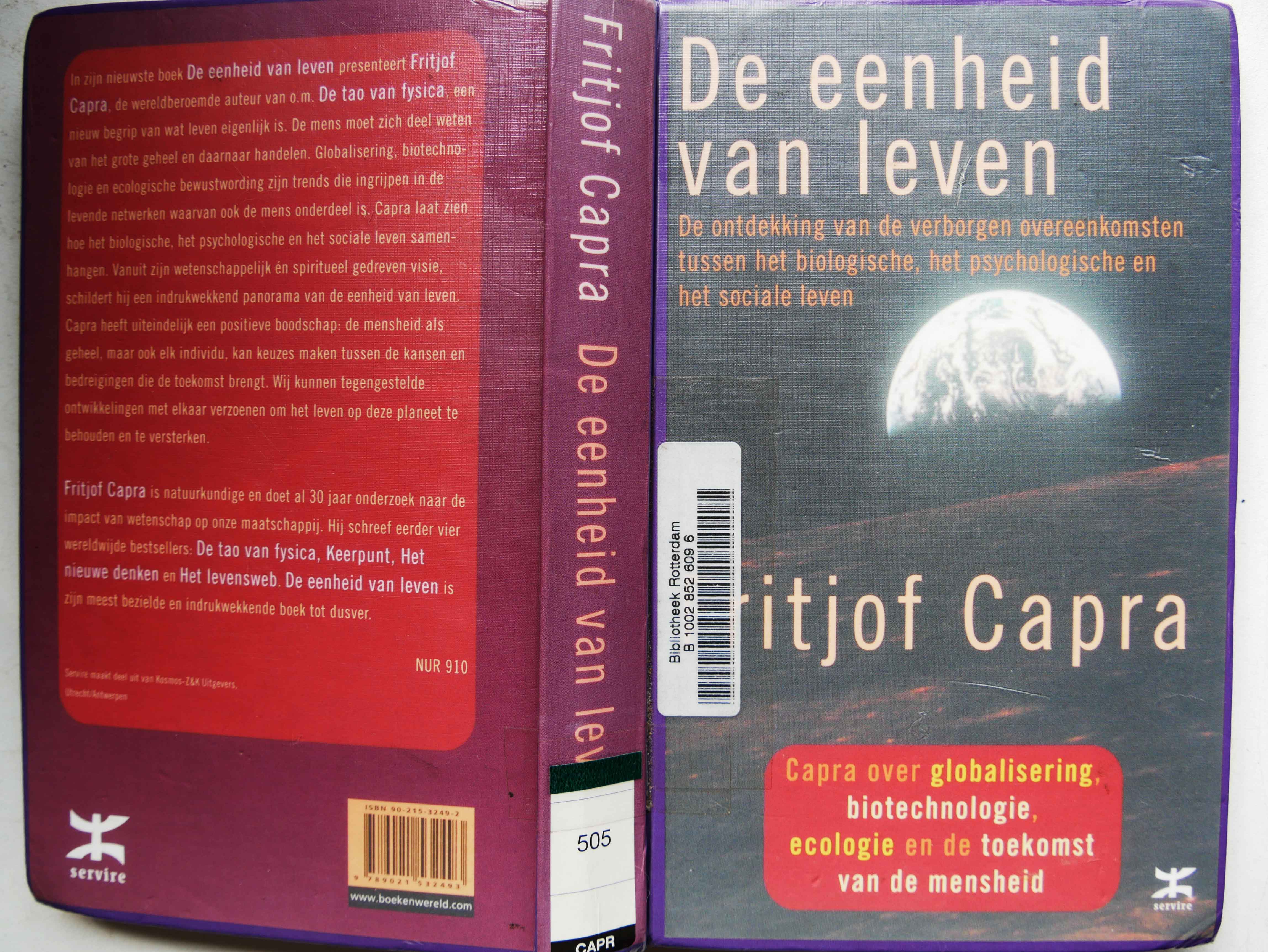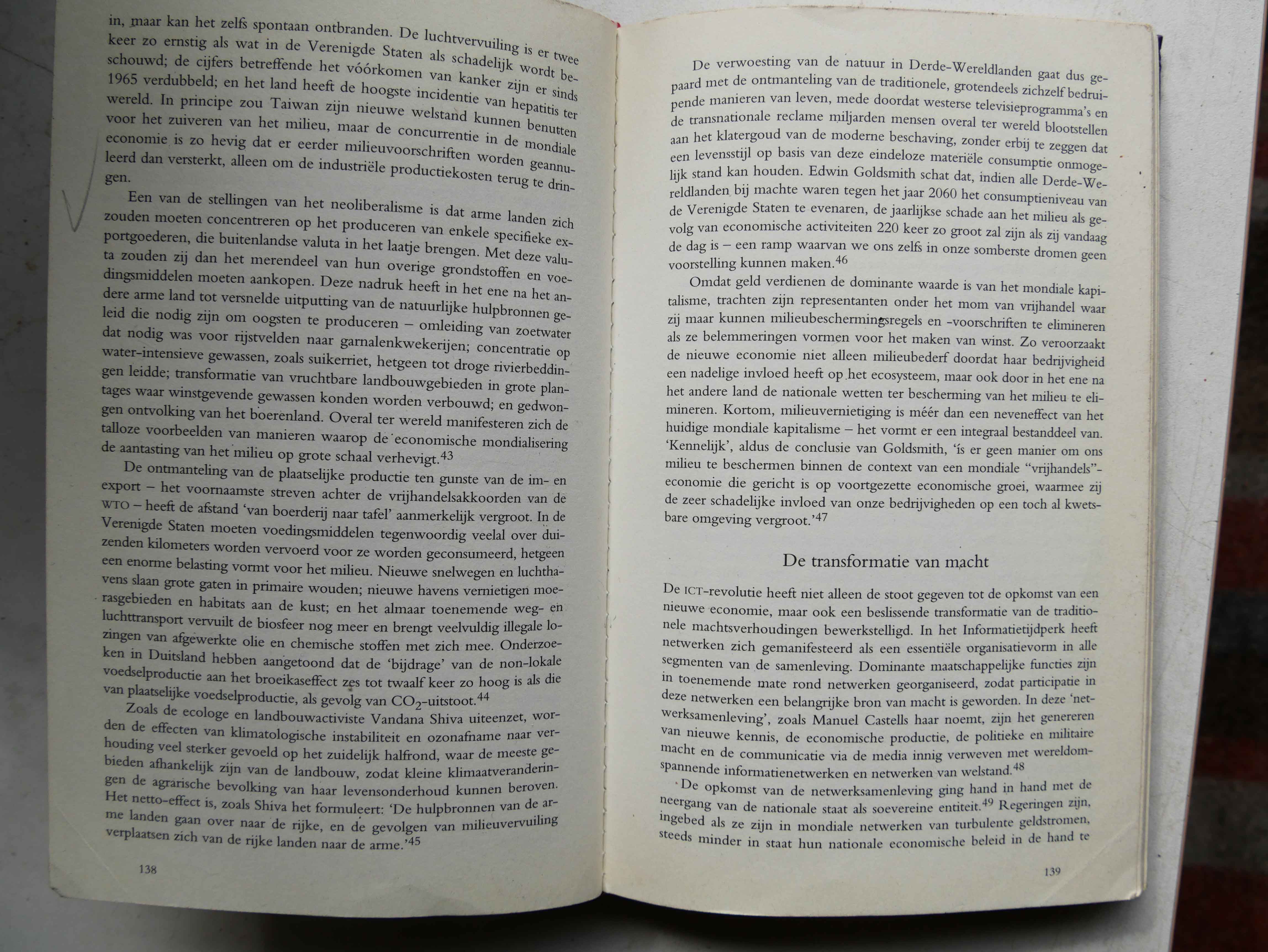
Influence
The date in the photograph is wrong. Today, the day i threw for the I Ching, it is the 24th.
63. Chi Chi / After Completion
above K’AN THE ABYSMAL, WATER
below LI THE CLINGING, FIRE
This hexagram is the evolution of T’ai PEACE (11). The transition from confusion to order is completed, and everything is in its proper place even in particulars. The strong lines are in the strong places, the weak lines in the weak places. This is a very favorable outlook, yet it gives reason for thought. For it is just when perfect equilibrium has been reached that any movement may cause order to revert to disorder. The one strong line that has moved to the top, thus effecting complete order in details, is followed by the other lines. Each moving according to its nature, and thus suddenly there arises again the hexagram P’i, STANDSTILL (12).
Hence the present hexagram indicates the conditions of a time of climax, which necessitate the utmost caution.
THE JUDGMENT
AFTER COMPLETION. Success in small matters.
Perseverance furthers.
At the beginning good fortune.
At the end disorder.
The transition from the old to the new time is already accomplished. In principle, everything stands systematized, and it is only in regard to details that success is still to be achieved. In respect to this, however, we must be careful to maintain the right attitude. Everything proceeds as if of its own accord, and this can all too easily tempt us to relax and let things take their course without troubling over details. Such indifference is the root of all evil. Symptoms of decay are bound to be the result. Here we have the rule indicating the usual course of history. But this rule is not an inescapable law. He who understands it is in position to avoid its effects by dint of unremitting perseverance and caution.
THE IMAGE
Water over fire: the image of the condition
In AFTER COMPLETION.
Thus the superior man
Takes thought of misfortune
And arms himself against it in advance.
When water in a kettle hangs over fire, the two elements stand in relation and thus generate energy (cf. the production of steam). But the resulting tension demands caution. If the water boils over, the fire is extinguished an its energy is lost. If the heat is too great, the water evaporates into the air. These elements here brought in to relation and thus generating energy are by nature hostile to each other. Only the most extreme caution can prevent damage. In life too there are junctures when all forces are in balance and work in harmony, so that everything seems to be in the best of order. In such times only the sage recognizes the moments that bode danger and knows how to banish it by means of timely precautions.
Nine at the beginning means:
He breaks his wheels.
He gets his tail in the water.
No blame.
In times following a great transition, everything is pressing forward, striving in the direction of development and progress. But this pressing forward at the beginning is not good; it overshoots the mark and leads with certainty to loss and collapse. Therefore a man of strong character does not allow himself to be infected by the general intoxication but checks his course in time. He may indeed not remain altogether untouched by the disastrous consequences of the general pressure, but he is hit only from behind like a fox that, having crossed the water, at the last minute gets its tail wet. He will not suffer any real harm, because his behavior has been correct.
Six in the fourth place means:
The finest clothes turn to rags.
Be careful all day long.
In a time of flowering culture, an occasional convulsion is bound to occur, uncovering a hidden evil within society and at first causing a great sensation. But since the situation is favorable on the whole, such evils can easily be glossed over and concealed from the public. Then everything is forgotten and peace apparently reigns complacently once more. However, to the thoughtful man, such occurrences are grave omens that he does not neglect. This is the only way of averting evil consequences.
31. Hsien / Influence (Wooing)
above TUI THE JOYOUS, LAKE
below KêN KEEPING STILL, MOUNTAIN
The name of the hexagram means “universal,” “general,” and in a figurative sense “to influence,” “to stimulate.” The upper trigram is Tui, the Joyous; the lower is Kên, Keeping still. By its persistent, quiet influence, the lower, rigid trigram stimulates the upper, weak trigram, which responds to this stimulation cheerfully and joyously. Kên, the lower trigram, is the youngest son; the upper, Tui, is the youngest daughter. Thus the universal mutual attraction between the sexes is represented. In courtship, the masculine principle must seize the initiative and place itself below the feminine principle.
Just as the first part of book 1 begins with the hexagrams of heaven and earth, the foundations of all that exists, the second part begins with the hexagrams of courtship and marriage, the foundations of all social relationships.
THE JUDGMENT
Influence. Success.
Perseverance furthers.
To take a maiden to wife brings good fortune.
The weak element is above, the strong below; hence their powers attract each other, so that they unite. This brings about success, for all success depends on the effect of mutual attraction. By keeping still within while experiencing joy without, one can prevent the joy from going to excess and hold it within proper bounds. This is the meaning of the added admonition, “Perseverance furthers,” for it is perseverance that makes the difference between seduction and courtship; in the latter the strong man takes a position inferior to that of the weak girl and shows consideration for her. This attraction between affinities is a general law of nature. Heaven and earth attract each other and thus all creatures come into being. Through such attraction the sage influences men’s hearts, and thus the world attains peace. From the attractions they exert we can learn the nature of all beings in heaven and on earth.
THE IMAGE
A lake on the mountain:
The image of influence.
Thus the superior man encourages people to approach him
By his readiness to receive them.
A mountain with a lake on its summit is stimulated by the moisture from the lake. It has this advantage because its summit does not jut out as a peak but is sunken. The image counsels that the mind should be kept humble and free, so that it may remain receptive to good advice. People soon give up counseling a man who thinks that he knows everything better than anyone else.
